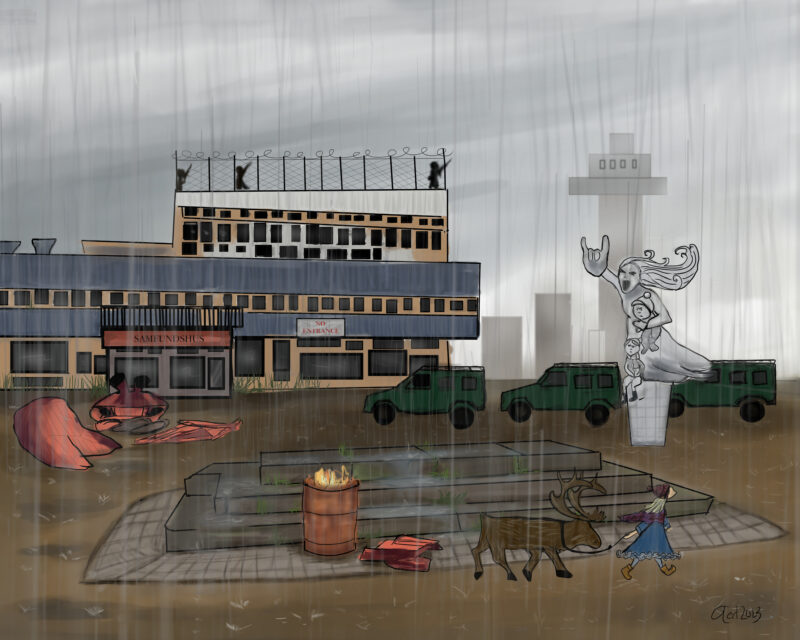“There is no security without people”
By Peter Schweitzer
The fourth and final scenario, called Military Outpost, was the darkest and most dystopic one: By 2050, Kirkenes has experienced a drastic decline, primarily due to climate change and geopolitical tensions. Key industries such as fishing, oil and gas, and tourism have lost significance, while the border with Russia is shut tightly. The only area of increase is a large inflow of military and related service personnel. As the government decides to move the town to the west of river Tana, the population of “old” Kirkenes declines sharply. The remaining inhabitants struggle to survive in a harsh and unforgiving environment.
Interestingly, several participants of the workshops noted that the reality of 2023 was, in some aspects, not too different from the dark scenario for 2050. Others mentioned that this future scenario reminded them of the past, namely the Cold War era. One participant said,
“I can say that I think we are going back to 1946, 1947.”
For some people,
“The worst thing would be closing the border.”
Not everyone in Kirkenes wants “development” and a population increase. Actually, some people made clear that they enjoy living in Kirkenes because there are few people there:
“It is not crowded and there is never a traffic jam. You have a lot of space to do all your outdoor activities. Nobody is bothering you.”
For some, a slight population decline would not be a problem, while others consider that the town already has too few inhabitants and is thus not sustainable. One of the people willing to live with the status quo or some decline suggested adding mining to the Military outpost scenario and named Svalbard as an example of such a development.
The provocative question of whether the demographic and economic decline of this scenario couldn’t be a chance for nature and environmental protection was answered eventually in the negative: the ecological impact of military activities would most likely be detrimental. Although the hope of establishing stronger economic ties with China via the Northern Sea Route has not completely disappeared from the recent past, it was clear to everyone that the geopolitical tensions with Russia made such developments impossible in the present. However, there was the suggestion that, if China would want to increase business, Russia may need to comply and accept transit to Norway.
Despite some realistic elements in the scenario, there were a variety of reasons why the situation with Russia might not become as bleak as forecasted. One participant pointed out that Russia’s war against Ukraine is so expensive for them that aggressive action against Norway seems unlikely. Because of that, and for other reasons (such as the fact that Norway and Russia never had been at war against each other), doubts were raised about whether Norway would ever build up a lot of military capacity in the region. The opinion that the northern military center would remain in the Troms region prevailed. Instead of a military build-up, it has been suggested that the army would encourage people to continue to live in Kirkenes. As someone said:
“There is no security without people.”
